Qualitative research professors, Lauren Moret and Kelly Guyotte, collaborated to virtually connect two narrative inquiry cohorts from their respective universities. Twice during the spring 2015 semester, students from the University of Tennessee, Knoxville and The University of Alabama utilized technology to have small group discussions about narrative inquiry and qualitative research.
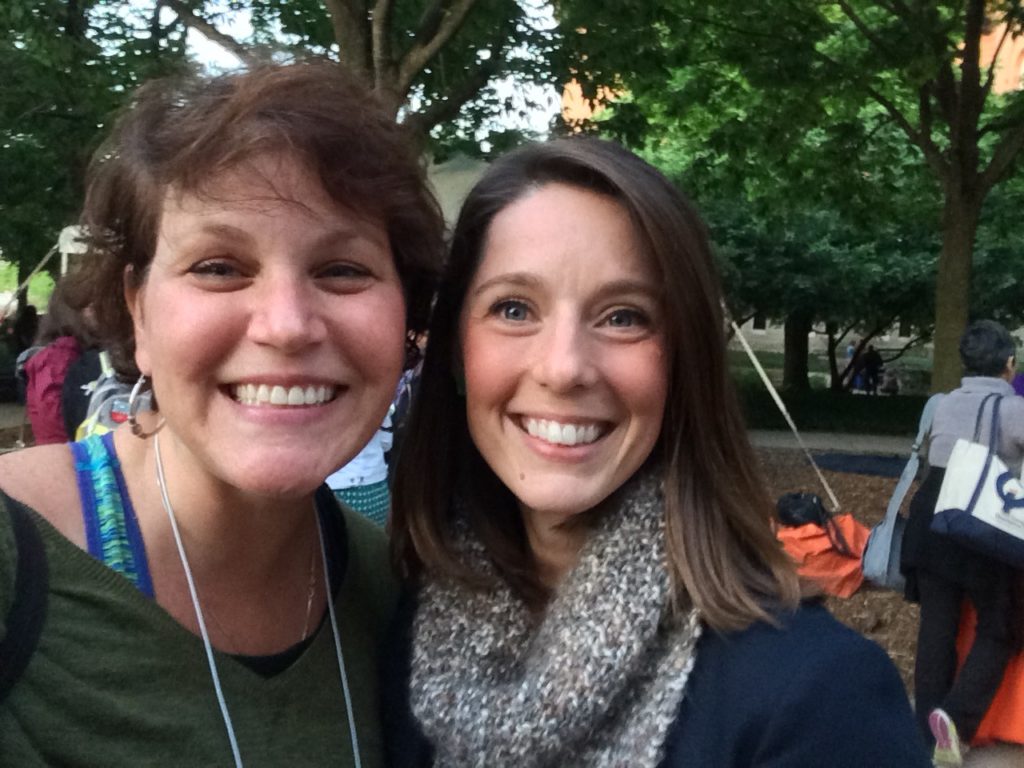
Lauren Moret and Kelly Guyotte first met during their doctoral studies at the University of Georgia. Now, they are both assistant professors, Moret at UT and Guyotte at UA. The two have stayed in contact and realized they were each teaching a narrative inquiry course during the spring 2015 semester. Guyotte said, “as chance would have it, our narrative courses were on the same night and we began brainstorming a way to bring our students together.”
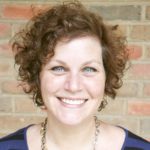 “During our planning discussions, we crafted the idea of connecting our two working groups into sister cohorts where we could offer professional learning, dialoguing, and networking with other advanced qualitative scholars from a different research intensive institution. It has worked out better than I could have imagined.” – Lauren Moret
“During our planning discussions, we crafted the idea of connecting our two working groups into sister cohorts where we could offer professional learning, dialoguing, and networking with other advanced qualitative scholars from a different research intensive institution. It has worked out better than I could have imagined.” – Lauren Moret
Small groups of students from the two universities were matched up by research interests. They met once at the end of January and again at the end of April, primarily though video conferencing.
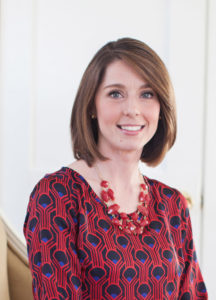 “Simply creating a space for informal dialogue between our doctoral students allowed them to realize many things, including the fact that many of the anxieties and tensions they felt in their programs of study were normal and shared. More importantly, it allowed the students the opportunity to grapple with many ideas central to narrative inquiry that we were discussing in class.” – Kelly Guyotte
“Simply creating a space for informal dialogue between our doctoral students allowed them to realize many things, including the fact that many of the anxieties and tensions they felt in their programs of study were normal and shared. More importantly, it allowed the students the opportunity to grapple with many ideas central to narrative inquiry that we were discussing in class.” – Kelly Guyotte
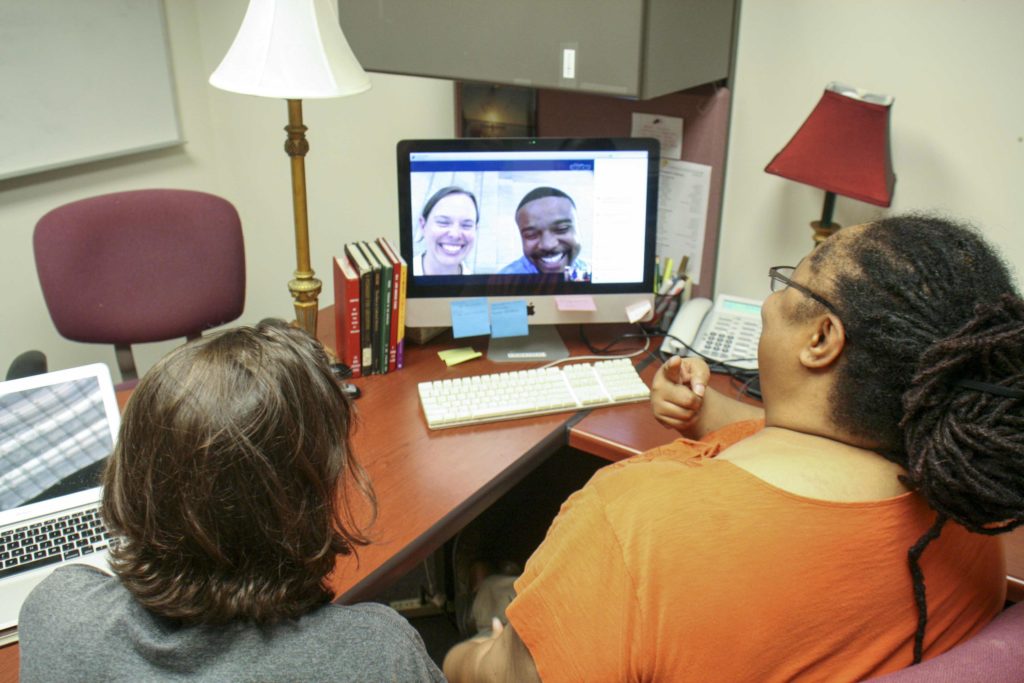
Students from both universities were asked questions about this collaborative experience. Not one had ever done anything like this in a course. Read their responses to other questions below.
What did you think of the activity/experience?
I thought it was beneficial in regards to my work as a graduate student/novice researcher. – Lisa Gaskill
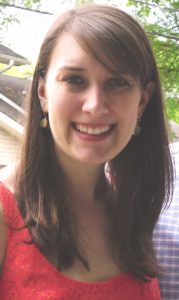 I really enjoyed the experience. I have such a busy schedule that I don’t ever really have time to sit and talk with other people about how my classes are going. It was a “no-pressure” way of reflecting on the narrative experience. It was also really nice to be matched up with someone who had a similar research interest. – Anne Murray
I really enjoyed the experience. I have such a busy schedule that I don’t ever really have time to sit and talk with other people about how my classes are going. It was a “no-pressure” way of reflecting on the narrative experience. It was also really nice to be matched up with someone who had a similar research interest. – Anne Murray
I really liked the experience. We talked about our notions and experiences about the course, about our research interests, and about what we were doing for our interests. – Sara Nasrollahian
It was fun and engaging. Getting to hear someone else’s experience at a different university who happened to be about at the same place in the program as us was delightful. There were some technical difficulties, but that is to be expected whenever something is done over that large of a distance. – Duncan Overton
It was a positive addition to the variety of activities that made up the class. A nice way to reach out, make connections, and share experiences. – Sultana Shabazz
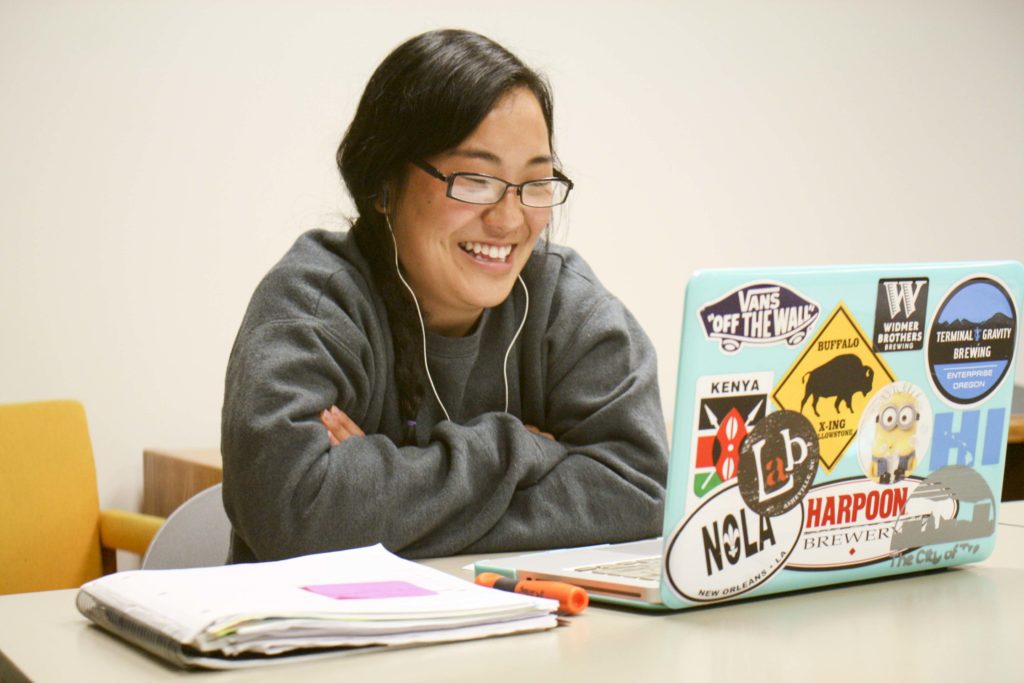
In what way do you feel you gained from/benefited from this experience?
I was able to learn from a diverse body of individuals within the field of qualitative research. – Lisa Gaskill
I think I gained from this experience in two ways. First, I made a nice contact at UT. Second, I was able to engage in reflective sense making of the process of narrative. – Anne Murray
We were very friendly to each other, but at the same time focused on some academic terms and discussions…we may be able to collaborate in the future, which will definitely be a great opportunity for me to have friends out of state. – Sara Nasrollahian
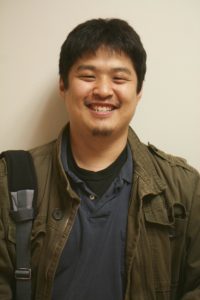 I think it has shown me the value and benefit of staying in touch with friends and colleagues you make along the way. If Lauren had not known someone there we probably would not have been exposed to this experience. – Duncan Overton
I think it has shown me the value and benefit of staying in touch with friends and colleagues you make along the way. If Lauren had not known someone there we probably would not have been exposed to this experience. – Duncan Overton
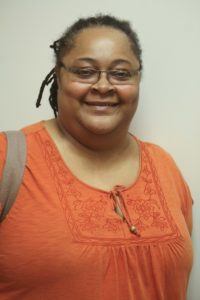 I was struggling with trying to figure out how to frame our final assignment and felt pretty tapped out of ideas. During the meeting, we all shared what we were working on and that generated a lot of very useful constructive comments. I got some very good ideas, which have proven to be helpful in finally nailing down that last assignment. – Sultana Shabazz
I was struggling with trying to figure out how to frame our final assignment and felt pretty tapped out of ideas. During the meeting, we all shared what we were working on and that generated a lot of very useful constructive comments. I got some very good ideas, which have proven to be helpful in finally nailing down that last assignment. – Sultana Shabazz
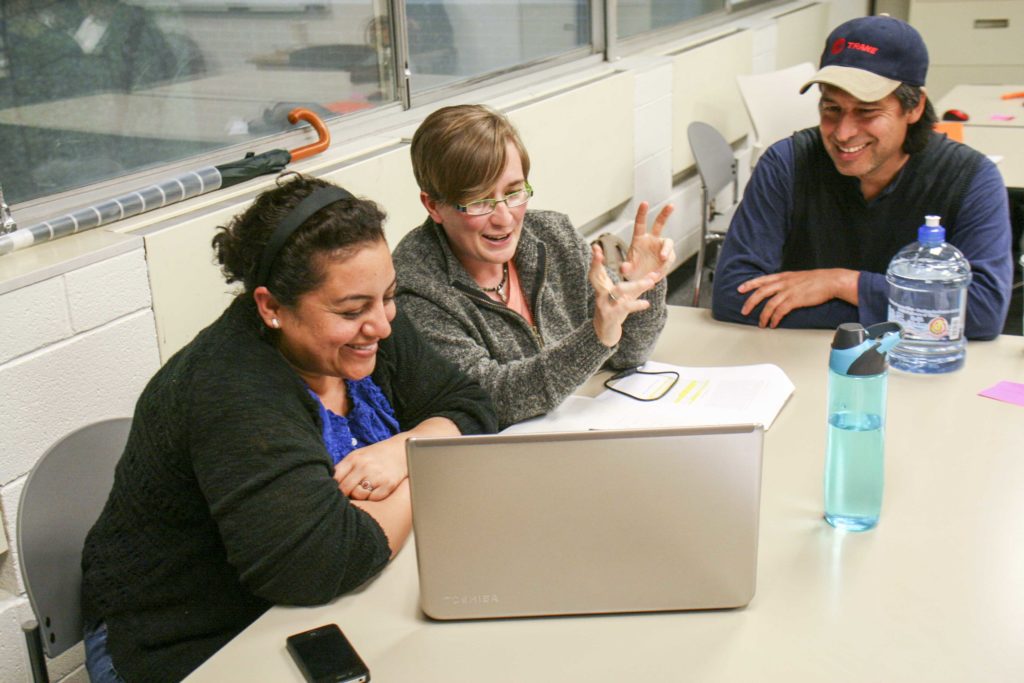
What were your feelings about repeating the activity at the end of the semester?
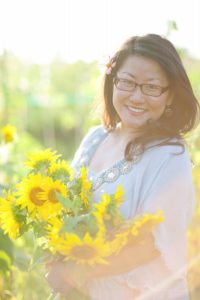 I think that it gave us all a chance to expound on our previously mentioned work. It was great to see how my partner’s narrative research interests evolved over the course of the semester. – Lisa Gaskill
I think that it gave us all a chance to expound on our previously mentioned work. It was great to see how my partner’s narrative research interests evolved over the course of the semester. – Lisa Gaskill
I was excited to check back in at the end of the semester. It was nice to see it though, and to verbally discuss what we had learned. – Anne Murray
The second time we met virtually, we talked more about the process we had gone through and shared our experiences about different analysis we had done in the course and enjoyed each other’s different passions about them. The content of the two times were slightly different and this made it very engaging for me. – Sara Nasrollahian
I thought it was nice to see where the other person was now as compared to the beginning of the semester, as well as getting to share where we were compared to the beginning. It had a sort of qualitative pre and post test vibe, which is a good thing. – Duncan Overton
A lot of what we have been working on is heavily weighted with reflections of ourselves as new narrative scholars. One of the main questions raised during that first meeting was “What is narrative?” By bookending the meetings, we were able to see the growth/change in our perceptions and relation to narrative – which was both supportive and validating. – Sultana Shabazz
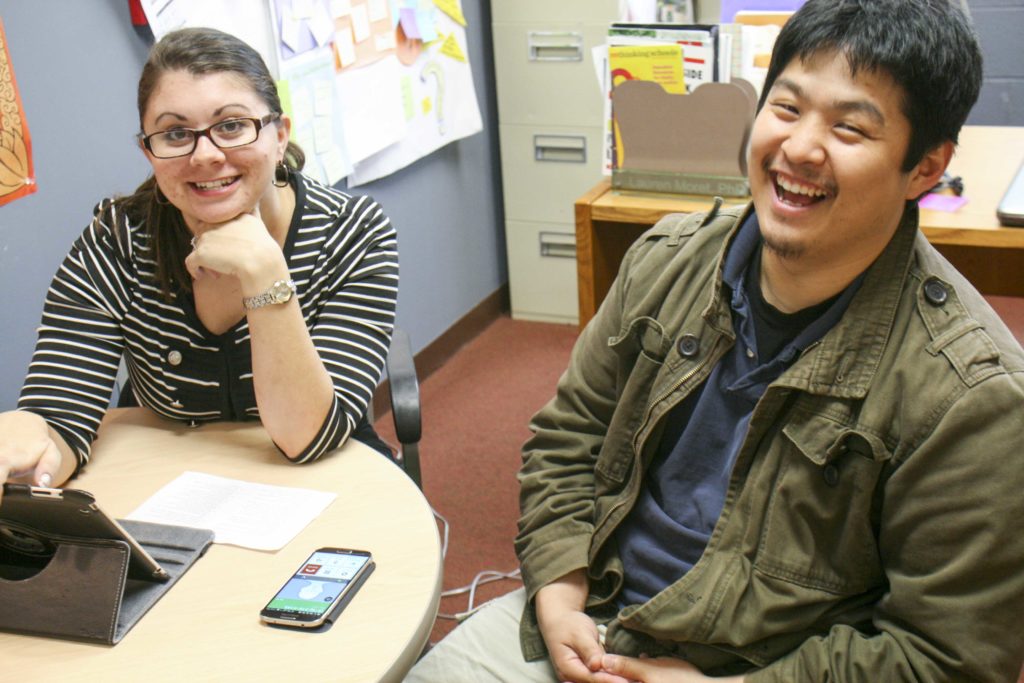
Is there anything else you would like to say about this interactive, virtual activity?
I think it would have been even better if we had been able to work on a collaborative project at some point during the semester. – Anne Murray
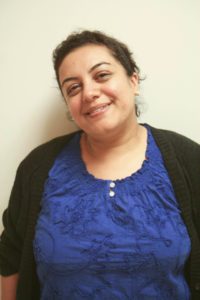 “I believe this was a brave and adventurous activity to be facilitated by our instructors. I really appreciate all their great and considerate arrangements and I will keep this activity in mind to do it in my own professional era as well.” – Sara Nasrollahian
“I believe this was a brave and adventurous activity to be facilitated by our instructors. I really appreciate all their great and considerate arrangements and I will keep this activity in mind to do it in my own professional era as well.” – Sara Nasrollahian
It was fun and engaging. Knowing that we are part of a large group of people helps a little bit, it makes me feel like I’m not completely alone and that other people are going through the same process. Pseudo-camaraderie I think. – Duncan Overton
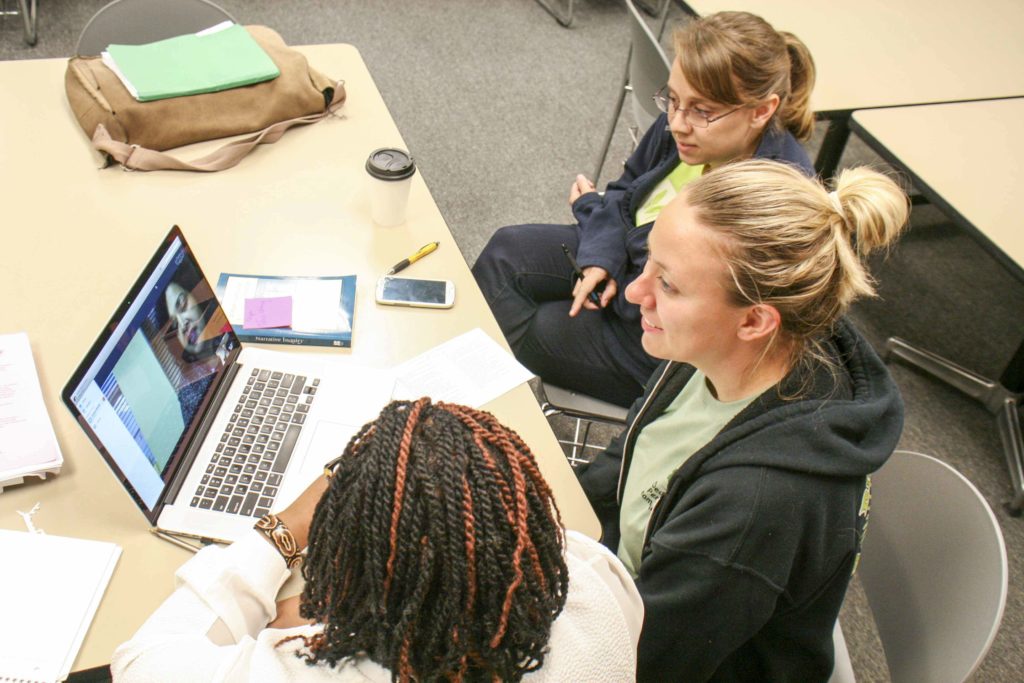
Guyotte and Moret also discussed the importance of dialogue.
Guyotte explained, “By bringing students together, particularly students who are using qualitative inquiry, we can give them opportunities to dialogue about their research and to develop understandings about complex qualitative concepts. It can be reassuring to connect with individuals outside of our home institutions who are feeling very similarly or who are/have been through a similar process.”
Moret said, “I think it’s really important for scholars (not just graduate students but faculty members too) to dialogue with others about their work, theory, and methods used for research. Students are better prepared for other university settings when they learn not only within their context but outside of it as well. I want to do my best to help prepare students to be great researchers.”












